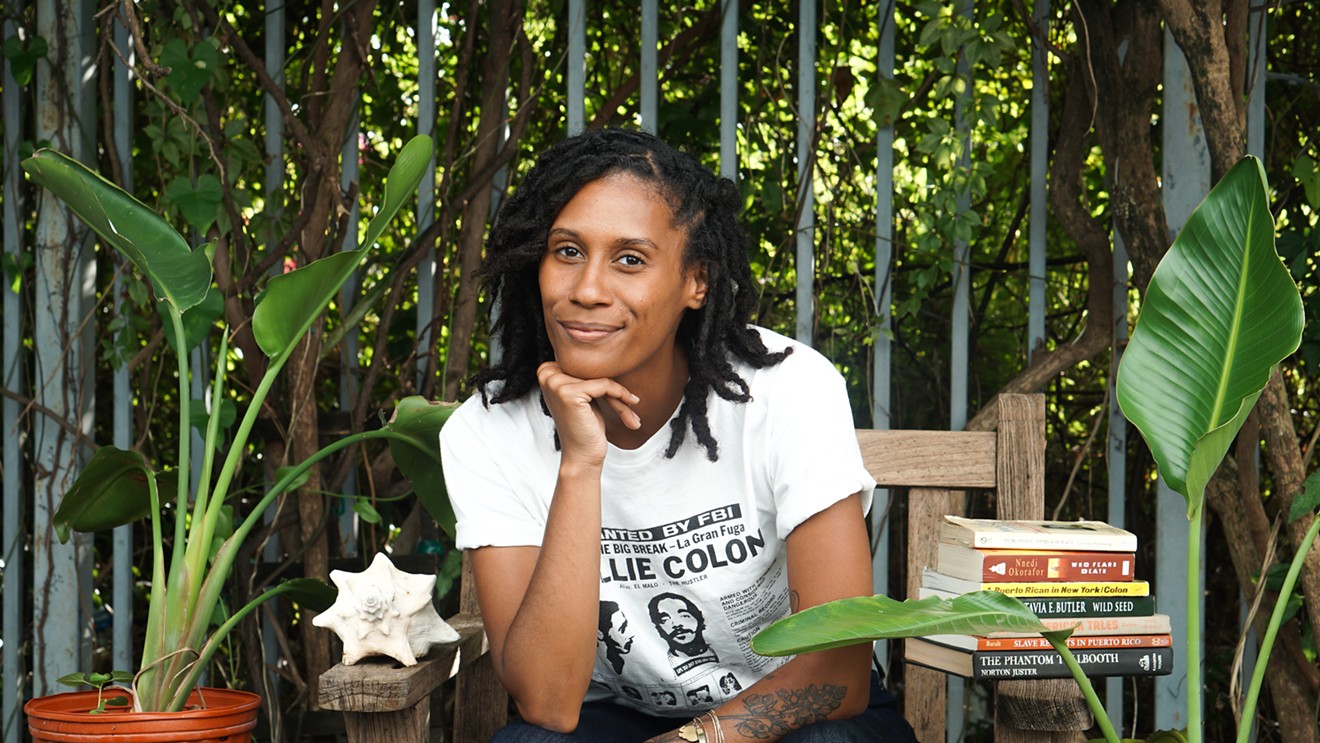The Afro-Latinx creative of Puerto Rican and Panamanian decent spent the last four years writing the book, but after Hurricane Maria struck the Caribbean island, devastating its communities, her sense of urgency was heightened. Now she's asking the community to donate to her Kickstarter to have the book finalized and independently published.
The 32-page alphabet book is a way to teach children and parents about Puerto Rico's history, De La Espada says, and to show positive examples of brown and black Boricuas, rather than highlighting the negatives the Latino community faces. She says the book is meant to be educational but is also a tool of protest and resistance.
"D is for Decolonized. In that sketch, you have a young boy looking at a subway train, and in the smoke cloud of the train you have different Taíno symbols," she says, referring to writings of Puerto Rico's indigenous people. "They may not know it, but the next time they see [those symbols] in another context, they'll recall that they've seen those images before."
The book also features Puerto Rican nationalists like Lolita Lebrón, an influential woman who resisted the U.S. acquisition of Puerto Rico as a commonwealth, even leading an attack on the U.S. House of Representatives in 1954; and Rafael Hernandez, who composed the unofficial anthem of the island, "Preciosa."
De La Espada, who says the book is for kids ages 5 and up, says teaching children came naturally for her. She became a kindergarten and special education teacher at the age of 23, fresh out of college. With her own schooling experience still in recent memory, she says she was instantly disappointed at how the system wasn't educating youngsters.
"Standardized testing is all people talk about, and I saw how the curriculums had been stripped of all artistic nature, of all imaginative thinking. Every little piece that kept me going in school was completely out of the curriculum when I started teaching, and even less now," De La Espada says.
The Alphabet of Enchantment Island has also been a way for De La Espada to reconnect and discover her roots, sharpen her imagination, and highlight the story of Latin multigenerational families. In some pages, she depicts
To make the book a reality, De La Espada needs to raise $10,000 by August 27 and is hoping the community can support a dream years in the making. For her next project, she's considering a graphic novel or an encyclopedia including more Boricuas who didn't make it into this story. For De La Espada, it's about unlearning harmful stereotypes, nurturing imagination, and going back to the basics, starting with the ABCs of the Isla Del Encanto.
To donate to The Alphabet of Enchantment Island, visit the kickstarter.com.












